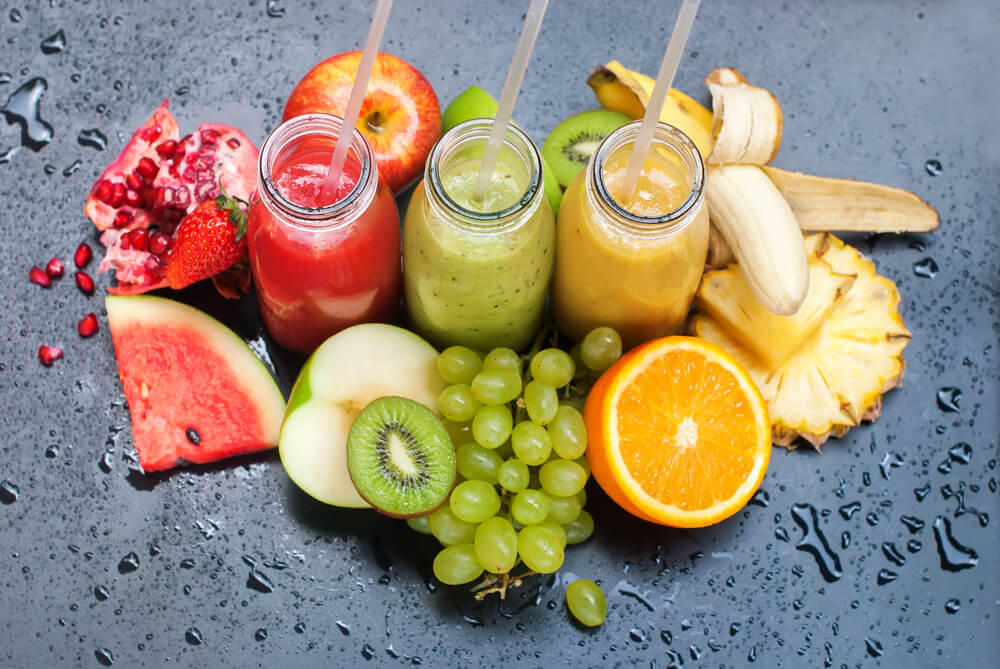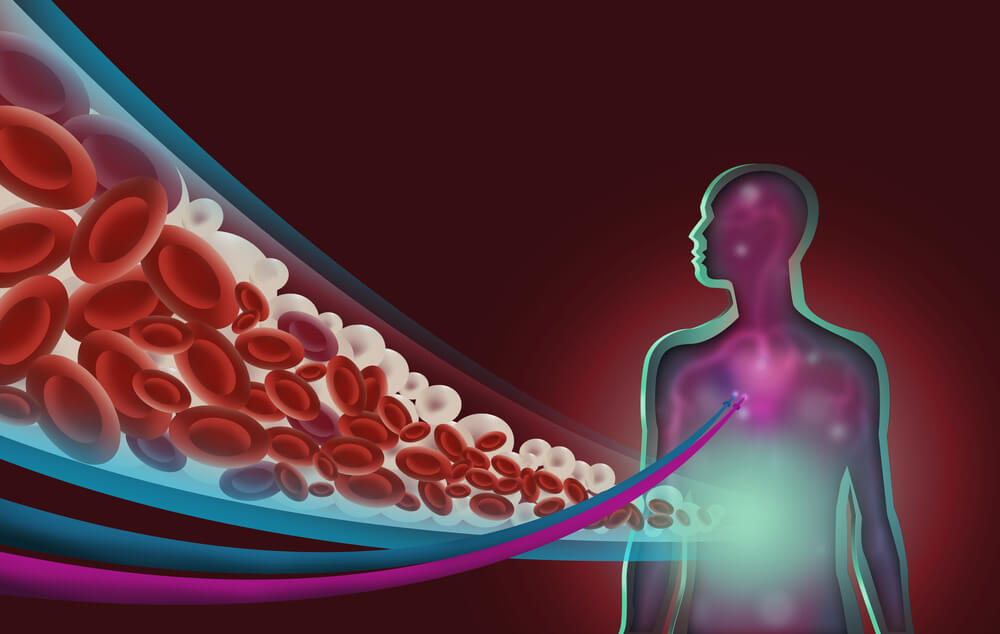
Not sure if a multivitamin is a good idea? The fact is that most tend to be lacking in at least some vitamins. We give you some insights on how multivitamins could work for you.
Does your diet give you all the nutrients you need?
Can you be sure you’re getting the 40 plus vitamins and minerals needed to maintain a healthy body?
If you’re like most Americans, then perhaps you really can’t. Even the healthiest of eaters can struggle to get all of the nutrients they need from just the foods they eat. Enter, the world of supplements.
Odds are when you think of supplements you might be thinking protein powders, BCAAs, fat burners, creatine or maybe something like omega-3s. And you always hear questions like what supplements should i take to lose weight? No doubt, all of these can play a role in a healthy overall regimen. But, you might have forgotten about perhaps the most simple and powerful supplement there is: The humble multivitamin.
As we all know, failing to meet your body’s most basic vitamin and mineral needs leaves you at risk for deficiencies. The multivitamin can make sure these basic needs are met. It doesn’t make sense to dose up with the fancier supplements if you’re overlooking the building blocks of a healthy body. These building blocks are exactly what a multivitamin takes care of.
Still thinking of multivitamins just as those candy-colored gummies for kids?
Not so. Putting age aside, a good multivitamin should be a regular in your medicine cabinet. Particularly if you’re bodybuilding or hitting the gym regularly, they should be a part of your day. In fact, anyone looking to burn fat, build muscle or just maintain a healthy body should be taking a multivitamin.
But before you lose yourself in the endless aisles of choices at your local store, read up on everything you need to know about the best multivitamin.
Why?
When it comes to your health, doing your research is always vital. What follows is everything you need to know, so you can be sure you’re choosing the one that meets your needs.

What Does A Multivitamin Do?
Before delving in, you might be wondering, just what does a multivitamin actually do?
As the name suggests, a multivitamin doesn’t just provide a dose of vitamin E or A, but the whole spectrum of nutrients our bodies need. This includes both an alphabet of vitamins, plus key minerals.
By downing one each day, along with eating a healthy diet, you can be sure that in just one dose you’re getting as much as 100% of each of the critical nutrients. Rather than having to remember to swallow a trail mix of pills, a multi provides you with everything you need in a one-stop shop.
Do You Need Multivitamins?
At this point, you might be thinking that humans didn’t always have multivitamins.
So can’t you just get what you need each day from your diet alone?
Fair assumption. The facts show otherwise. The U.S. Centers for Disease Control reports that about half of Americans choose to pad out their diet with a daily multivitamin.
You can always check with your doctor to see if a multivitamin is right for you. In general, many Americans tend to fall short on their daily doses of calcium, vitamin D, dietary fiber and potassium. Both kids and adults are at risk for low levels of these crucial nutrients.
Without proper levels of any of these, your body can experience a breakdown of the metabolic pathway.
The result?
You’ll notice less than stellar energy, low-performance levels. and a lagging system. Taking a multivitamin, along with eating a colorful, varied diet, is your best bet to make sure your body runs smoothly.
Are you still skeptical?
Consider this: If you’re active and hitting the gym or playing sports you’re actually more in need than the typical person.
Why?
You are taxing your body and asking more of your system. As a result, you are more likely to be short on your vitamins. If you’re a gym-goer or athlete, you’ll definitely want to be taking a daily multivitamin.

What Will You Get?
Need a basic recap of vitamins?
You came to the right place. In a nutshell, just remember that vitamins are a must in our bodies for basic functions and needs. Vitamins are to thank for certain chemical reactions within the body. Without them, it would not be possible to convert food into energy and tissue.
Here’s a breakdown of some key vitamins that your multi will provide. If you’re not getting all of these from your food, rest assured your multivitamin will pick up the slack.
Vitamin A: This is crucial for skin, bones, teeth, a healthy immune system, and vision.
Vitamin B Complex: There are many types of B vitamins. This includes B6 and B12, which your multi should provide. Together they work to aid nerve function, digestion, vision, skin, and mood.
Vitamin C: You’ve probably heard how crucial this is when you are feeling under the weather, but it is also great for strengthening your immunity. It protects your cells.
Vitamin D: Many Americans are low on vitamin D. Without it, we can’t properly absorb calcium, and it’s also crucial for cell growth and immunity.
Vitamin E: This vitamin is not only a key antioxidant, but it can help with heart health and can prevent hardening of arteries.
Vitamin K: Though not always as well known, vitamin K is critical for the health of your bones, teeth, and cartilage.
Not only does a good multivitamin provide you with all of the vitamins we’ve just listed and more, but it also packs in a dose of all the minerals that you need each day. You likely remember minerals from your middle school periodic table of elements. In our bodies, they’re needed to produce the hormones we rely on. A multivitamin should contain everything from iodine, to help our thyroids work smoothly, to calcium, manganese, magnesium, selenium and others.
Pros And Cons Of Multi Vitamins
Despite all the glowing praise for multivitamins we’ve gone over, if you’re still wary of taking them, you’re not alone. In recent years, multivitamins have received a less-than-stellar rep. Many have sworn them off altogether or even claimed they might pose a danger to your health. The jury is still out. Many are on the fence when it comes to their benefits or potential risks.
So, how can you decide if they’re right for you?
Ultimately, the main case against multis is quite simply the lack of research about their perks. While no one disagrees that humans need a variety of vitamins and minerals to perform up to the levels we should, things are fuzzier when it comes to whether multivitamins are the best way to get them.
At least one large-scale study has been done on their long-term benefits. The results were not concrete. The study looked at those who regularly took a multi, but it dug up no hard evidence that the multivitamin lowered their risk of heart disease. Another study even found that women who regularly took a multivitamin had higher rates of breast cancer. However, they couldn’t be sure this was due to taking the multivitamin.
Another concern with vitamins is potential toxicity. Too much of a good thing can actually be a danger. Many people think in terms of if some is good, more is better. That is not the case with vitamins. Choose a multivitamin that provides at or slightly less than 100% of the daily value (DV) to avoid overloading your body.
Some have gone so far as to say that Americans are wasting millions of dollars a year on vitamin supplements, when in fact, the benefits are not even known. Despite this controversy, most experts agree that taking a reputable multivitamin with safe levels of nutrients is a low-cost way to boost your health. It shouldn’t hurt, as long as you take them as prescribed, and, of course, run any pre-existing factors by your doctor first.

Food Is Always First
Another criticism of the multivitamin is that it’s easy to see it as a cure-all. The truth is nothing replaces a healthy diet. While a supplement like a multivitamin can certainly boost your diet and fill in any gaps, it never should be considered a replacement for eating right.
Don’t fall into the trap of thinking that by taking a multivitamin, you’ve fixed a diet filled with processed foods, added sugar, fast food, and empty calories. It doesn’t work that way. Why? The body always takes in nutrients from foods better, so your mindset should always be food first, supplements second. It may also be a good idea to take your vitamins in the middle of your meal.
When we get our vitamins the way nature planned, through plants we eat, complex reactions happen in our bodies. This is due to the phytochemicals found in food. Ultimately, nothing made in a lab can ever truly copy this complex web of chemical reactions in the body. Thus, no matter how impressive the label on that multi, food will always be better.
This Is What To Look For The Best Multi Vitamins
Have you ever felt the headache of trying to choose the multi for you?
If so, you’re not alone. Though a simple enough concept, most people face confusion when it comes to choosing the right multi for them. This should come as no surprise if you’ve ever walked down the aisle of a drugstore and tried to make sense of all the options.
Where do you start?
Should you choose a gender-specific multi?
Maybe you should get one for active adults?
How about ones to boost metabolism?
With too many choices, it can be tempting to forgo them altogether. At the end of the day, try to look past the flashy labels and advertising claims. There are really just a few key things to look for when choosing the best option for you.
For starters, be sure to choose a pill without sky-high levels of nutrients. No one really needs more than 100% of the daily values of any one nutrient. In this case, more is certainly not always better.
Why?
Getting too much of certain vitamins, such as A, can be dangerous. These can build up in your system, eventually causing liver damage. To play it safe, scan the labels to find one that offers around 100% for all vitamins.
Many of the claims around multivitamins are just hype. With that said, many experts do suggest choosing an option designed for your gender or age. Multivitamins made specifically for women, for example, tend to have extra iron and calcium. Both of these are a plus for women’s bodies, but not necessarily men. Women’s and prenatal vitamins also contain nutrients to promote hair, skin and nail health. On the flip side, those designed for men have nutrients to boost prostate health and testosterone levels.
Bottom line?
Skip past all the flashy claims when it comes to labels. Stick to the basics. Look for a multi that provides right around 100% of your daily values and grab one designed for your age and gender.

Conclusion
As with any boost to a healthy lifestyle, multivitamins should always be seen as just that – merely a boost. They’re not a magic pill and not the end-all, be-all answer to your health.
As we’ve said, a healthy diet will always be king. But even for the healthiest of eaters, it’s not always easy or possible to get 100% of your daily values of all nutrients. A vitamin should be an option to fill in these gaps.
In particular, those who are training hard, limiting their caloric intake, nursing, pregnant or have other health issues should make sure they’re meeting those recommended daily doses.
Check with your doctor and consider our advice when finding the best option for you. Do what you need to do in order to ensure your body is getting all the nutrients it should have every day.
By Emmy Schneider-Green
Latest posts by Terry M (see all)
- Garage Gyms - Aug 1, 2018
- Kettlebells – Why They Should Be Added To Your Routine. - Jul 24, 2018
- Weight Belts: What Are They Really For? - May 31, 2018










[…] possible see a lack of Vitamin A, D, E, and Okay retention, so you could have to take extra vitamins to make up for […]
[…] also likely see a loss of Vitamin A, D, E, and K retention, so you may need to take additional vitamins to make up for […]
[…] on the kind of multi-vitamin you’re taking, you’ll want to increase your zincand magnesium intakes. Whenyou work out […]
[…] you are looking to boost your immune system you will want fruit that is high in vitamin C. Orange juice is a popular option for individuals who […]
[…] you are looking to boost your immune system you will want fruit that is high in vitamin C. Orange juice is a popular option for individuals who […]
[…] you are looking to boost your immune system you will want fruit that is high in vitamin C. Orange juice is a popular option for individuals who […]